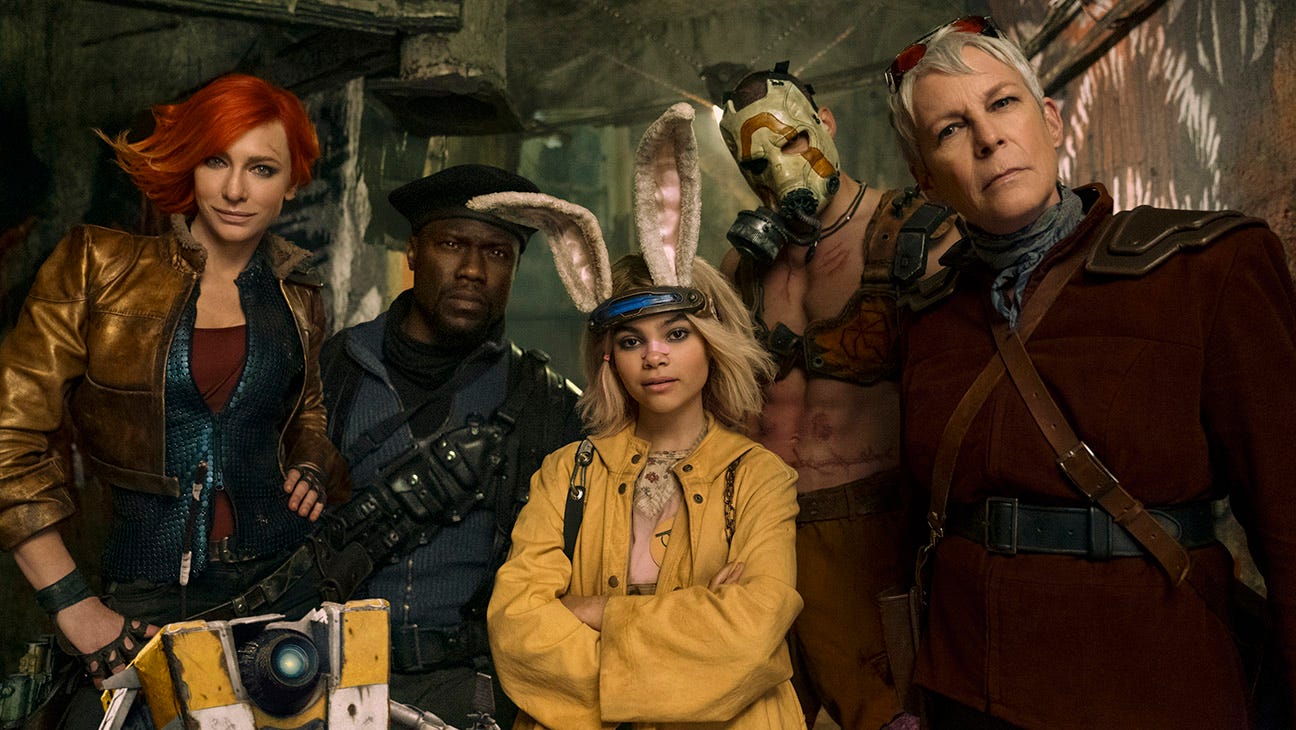Borderlands Movie Review: Baffles you with how it gets nothing right
The garbage-filled wasteland where the film is set becomes a metaphor for the film itself
Early on in Eli Roth’s Borderlands, based on the superhit video game franchise, we get a haphazardly assembled narration by Lilith (a miscast Cate Blanchett headlines a film full of miscast actors) where every imaginable trope of the superhero/adventure genre is dumped. We get a unique geographical setting, a once-glorious civilisation, a prophecy about a saviour, an evil villain who wants absolute power, and a vault that people have been searching for years but have never found (which, of course, we know, is going to be found in the course of the film). There’s a sense of slight fear in the viewer, if we are sitting down for yet another superhero story about the same concepts. If we will get yet another of the barely watchable, visual effects-filled genre that has long overstayed its welcome.
Borderlands surprises us by ending up even worse than that meagre expectation. It takes up these utterly done-to-death concepts and sends them into a chaotic and random spin. Any sense of excitement or fun is immediately shot down, and the next senseless scene is thrown at us. Any moment of potential impact is swiftly abandoned to jump to the next absurd situation. Any situation where there is a chance to stage great video-game inspired action is botched up and we instead get a baseless unfunny line from one of the characters. It’s like the film tries very hard to give us a bad time.
As far as the plot goes, Tiny Tina (Ariana Greenblatt) is presumably kidnapped by rogue soldier Roland (Kevin Hart) and Krieg (Florian Munteanu, playing the only mildly entertaining character in the film). Lilith’s mission is to retrieve Tina from the planet Pandora. The viewer’s mission is to stay awake.
Pandora is said to be a place full of dangerous beings, quite similar to the Pandora in James Cameron’s Avatar. (This is not the only time Borderlands reminds us of other films - Guardians of the Galaxy and Mad Max: Fury Road are essentially happy yesteryear memories while watching this film.) However, while we enter Pandora, the true terrifying feeling we get is in the form of narrative exposition. Even in scenes where two characters are talking to each other, their dialogues are muted, and we instead get narration that explains what they are talking about. Thankfully, this approach is discontinued mid-way, in one of the film’s several examples of random decisions.
Lilith initially comes across as an unnecessarily rude protagonist. She keeps shooting at everything (even at a harmless robot) and keeps snipping mean lines to everyone she meets. Poor Cate Blanchett is confused about whether to say her dialogues with conviction or to leave the shabbily designed sets of the film and escape. Lilith seems to be given these traits just to make her come across as the mysterious and cool main character. Of course, she has a Traumatic Childhood Flashback. On meeting the good guys, Lilith immediately sides up with them because... she is the lead. It's hard to make sense of anything in this film—the connectionless jumping from one scene or context to another can be bearable in a video game, but in a film, structure and connectivity are vital.
As the film progresses into the abyss, it reaches a planet where redemption becomes impossible. When every scene starts, we know exactly how it is going to turn out. None of the characters get anything considerable to make us care, or even anything at all, other than the one-off trait. The Blonde Girl Who Likes Explosions. The Black Guy Who Says One Liners. The Robot That Irritates the Viewer. None of the dialogues create any impact; rather, they feel like they were written on the shooting spot. There are desperate attempts to establish emotion by dropping a mother-sentiment angle, a friendship betrayal angle, and a loveless child angle—the film throws everything at the viewer with a background score that couldn't care less, and nothing sticks.
For people who are fans of the video game, watching Borderlands will be a frustrating experience. For people who are not, watching Borderlands is an extremely frustrating experience. Ultimately, the garbage-filled wasteland where the film is set becomes a metaphor for the film itself.


